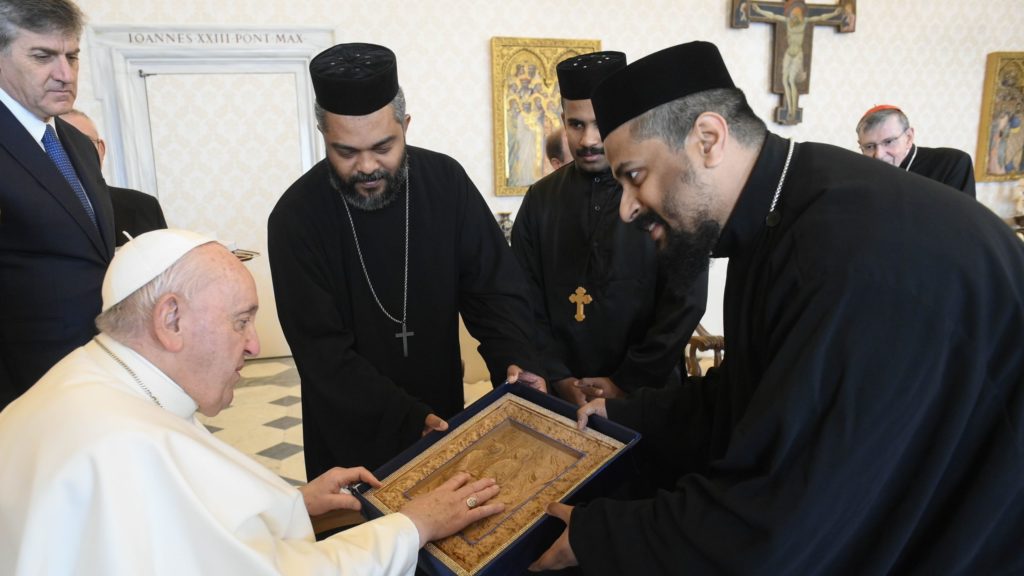Pope Francis prayed that the sanctions in force against Syria since 2011 will not prevent aid from reaching the tens of thousands of victims in dire need after earthquakes killed more than 5,000 people and left many more injured or homeless.
The pope met Feb. 23 with 18 young priests and monks representing the Coptic, Armenian, Syrian, Ethiopian, Eritrean and Syro-Malankara Orthodox churches.
Because of a "bad cold," the Vatican press office said, the pope did not read the speech he had prepared for the group, but he greeted all of them and gave them a copy of his prepared text.
"Some of you," he wrote, "come from the deeply suffering Syria; I would like to express a particular closeness to that dear people, sorely tried not only by war but also by the earthquake that, as in Turkey, has caused so many deaths and terrible devastation."
Faced with "the suffering of so many innocent people -- children, women, mothers and families," the pope wrote, "I express my prayerful hope that everything possible will be done for every person (and) that no justifications or sanctions will prevent the provision of urgent and necessary assistance to the population."
The main part of the pope's prepared speech focused on ecumenism as a journey Christians must make together.
The model for that journey, he said, is the story of the disciples on the road to Emmaus after Jesus' death.
The first lesson, the pope said, is that "if Christians walk together, like the two disciples of Emmaus, they will be joined by Christ."
But in the Gospel story, the two do not recognize the risen Jesus at first.
"Their sorrow and distress prevented them from recognizing him," the pope wrote. "In a similar way, discouragement and self-concern can prevent Christians of different confessions from seeing what unites them, from recognizing Christ who unites them."
"As believers, we need to trust that the more we walk together, the more we will be mysteriously accompanied by Christ, for unity is a shared pilgrimage," he said.
And, the pope wrote, like those disciples, Christians must talk to each other, sharing their experiences, but always in the light of the Gospel.
The most important lesson, though, is to walk close to Jesus and yearn for him to remain, Pope Francis said.
As the night drew near while they were walking, he said, the disciples "did not go off, each to his own home, but desired to prolong their fellowship with Jesus and with one another. They urged him; they kept insisting" that he remain.
"We need to desire unity with prayer, with all our heart and strength, insistently and tirelessly," the pope wrote. "For if the desire for unity fades, it is not enough to pursue dialogue: everything turns into a formality, into something expected."
"This is perhaps what is today most lacking to Christians of different confessions: an ardent desire for unity, which can prevail over partisan interests," the pope said.

